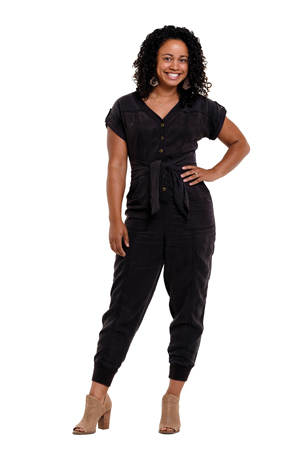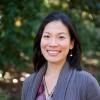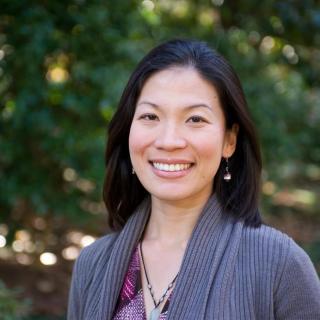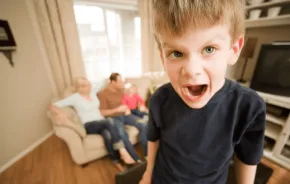
Each year, approximately 1 million pregnancies in the United States end in early pregnancy loss, stillbirth or newborn death. This October, in honor of Pregnancy and Infant Loss Awareness Month, we’re sharing the story of how one woman became a “mompreneur” through the loss of her infant son.
Jaki McQuiston’s vision of a cross-generational community art-making space traces back to her childhood, but its fulfillment in 2018 was borne out of tragedy. Her son Koba, who was born on April 30, 2018, after 37 weeks of gestation, arrived with no brain activity — an unforeseen condition. He died in the hospital 11 days postpartum.
Just weeks after Koba’s death, McQuiston discovered the space in Shoreline where she and her husband, Devin, would eventually found The Creativity Loft. The couple, who has a 3-year-old daughter, channeled their grief into its creation. “The Loft,” as it is affectionately called, is a community space that is dedicated to providing both members and the public with coworking facilities, private workshops and art lessons. Bathed in natural light and featuring wooden ceiling beams and windows as walls, this gathering space welcomes all ages to engage in artistic expression and healing.
A graduate of the arts-focused Northwest School, McQuiston has always found comfort in making art. Inspired by her maternal grandmother, a watercolor painter, McQuiston grew up sewing, painting, creating ceramics, and making quilts, clothing and jewelry. She established a jewelry stand at age 10 in Seattle’s Roosevelt neighborhood and taught after-school classes in painting and black-and-white photography to Los Angeles students during her college years.
More than 30 coworking spaces exist in the Seattle area, but The Creativity Loft appears to be the only one specifically centered on bringing together community members to make and celebrate art. “Experiences throughout my life have created this vision of wanting to create that for other people,” says McQuiston.
Tell us about your intention to create a space that is for folks of all ages and not just for those who identify as artists.
I named this “The Creativity Loft” because I didn’t want people to think, “Oh, I’m not an artist, I can’t do that.” I want The Loft to offer an entry into trying something new and creative. For a very long time I’ve wanted a creative space, some sort of center, where people across generations are doing art and supporting each other in a really strong community atmosphere. I wrote a paper about this vision in high school. I went to these small schools that had such a strong community and that were centered around art.
One community art center that comes to mind that has a heart, a vibrant community and a family feeling is La Peña [Cultural Center; lapena.org] in Berkeley. They have art exhibits, dance, film screenings, all types of community events, with a strong Chilean-American community and activism. In college, I studied abroad in Cuba, and I appreciated the strong sense of community, creativity and inclusion of elders in [that] society. Here, the elders who have so much wisdom are often sent to homes, where they are isolated.
Please share what you’re comfortable telling us about the circumstances that accelerated the creation of The Loft.
I was 37 weeks pregnant with Koba, my second child. He was transverse, meaning he was lying across my belly, so I went to the doctor to turn him, and that [seemed to be] successful. I ended up being monitored for eight hours, as they needed to see what was going on. I [eventually needed] an emergency C-section.
With the C-section, there was a curtain. I couldn’t see Koba, and he wasn’t breathing, so they took him away and transferred him to another hospital. I didn’t see him until they transferred me. Each day that passed, I was trying to catch up to the reality of how bad a state he was in, because I was so hopeful. I hadn’t seen what my husband had seen on the other side of the curtain. Every day was kind of a nightmare because we didn’t know what would happen. Are we taking him home? Are we taking him home severely disabled? Is there assistance for us taking care of a disabled child? It took forever. We ultimately found out he had microcephaly — he had no brain activity, which was also something I couldn’t really see. I was in a wheelchair so it was below the glass level [of the incubator]. He just looked normal to me. It was all a shock, because my daughter is very healthy and we had no family history of anything that would have indicated this.
How long after this did you find and build The Loft?
My godmother owns the building that The Loft is in. About a week after Koba died, she showed it to my mom and me. I was a zombie at the time, stressed and traumatized, but I thought it was beautiful with the light streaming in. Because the space is on the second floor, it feels like a tree house surrounded by greenery. I thought, with the natural light, it was such a great space to do art.
A week after seeing the space, I pitched the idea of creating a space for artistic healing and expression to my godmother. She loved it.
I love my little family — my daughter keeps us going, and I had to keep going for her. I wasn’t going to waste any time. I just felt that I’m going to say yes to whatever I want to do and I’m not going to let anything stop me. I went through an incredible experience of life and death, and so I just moved forward and said yes to every next step.
I had lost the idea of fear. Life is so precious. The worst thing that could happen, happened. I wanted to have Koba live on through the creation of The Loft — and leave a legacy for him.
How did establishing The Loft help you move through the early stages of grief?
I was expecting to take care of a baby, so I had this emptiness that I wanted to do something with. I also had this love that filled me up from having a child. Now, I didn’t have this child to give this love to, but I needed to direct that energy toward something. I needed something to create beauty out of so much pain.
I made a GoFundMe campaign for the people who wanted to give to us, so they could help create something bigger, something I wanted to do that will keep me busy while I am mourning. I felt weird taking money because I had lost a son, but people wanted to help me.
It helped Devin and me to stay busy and productive. He has a background in construction and remodeling. Working in the garden was helpful for me, and so for him, it was helpful to work on the space. We asked for extra babysitting time from my mom while we ripped out carpet, put down new floors and painted the walls. I had no marketing plan, no business plan.
So far, what people seem to be most attracted to The Loft?
Our members cowork here or make art with our sewing machine, easel, paint and craft materials. This summer, we hosted a weekly art workshop open to the public, and people come into the space wanting to rent it for different things. We’ve had a 40th birthday party here, a fundraiser, workshops on art-making and meditation. Healers have come in to do bodywork. We’re having our second holiday makers market Nov. 16–17. Last year, a lot of the participating vendors had also experienced pregnancy or infant loss.
How has art been a useful tool for you in processing your loss?
Art creates for me a kind of light, and it keeps me busy in a healthy way to move through whatever it is I’m struggling with. The Loft has been such an inspiration for me. It’s survival for me. It keeps me going. It keeps me activated. Through so much darkness in the world, it’s just been a blessing to have it. I’ve heard from people that baby loss is hard for them to talk about. Personally, I don’t have a hard time talking about it. For me, it’s a way of honoring Koba. As horrible as the outcome was, I had some beautiful moments of clarity and strength that came out of it, and in The Loft, I’ve created something positive out of it. I want to encourage other people to find that strength in loss and not feel like they have to hide their stories. Sometimes, the painful experiences can be our power.











